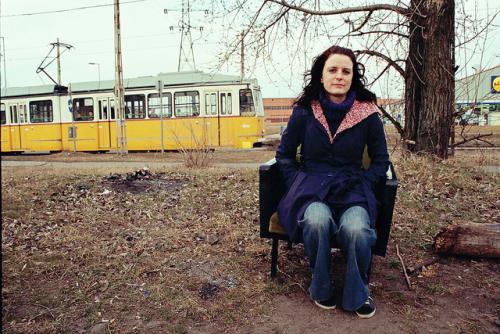From Skype to WhatsApp, two sociologists investigate the transformation the research is going through with the pandemic in terms of practices and meanings. A small guide on how to conduct online interviews
Being a researcher
during the pandemic

Doing research on the field has become very difficult, almost impossible, due to Covid-19. However, there are also endless possibilities to do research online and to establish online connections with the people that we feel we can bond with in research. In this context, we researchers tried to join our forces to make the research process as enjoyable and collaborative as possible. During Covid-19, some people found jobs online, and started to work without meeting their colleagues. We found ourselves isolated though connected, connected though isolated. The two of us experienced a similar situation. Without shaking hands, we started to work together and to share ideas on publications, articles, research methods, and projects. The relations seemed more distant and formal, and yet, there was an experimental way to overcome online barriers. The identity and soft skills of a researcher and interviewer play a pivotal role in this respect.
As female researchers, we realised that we could work well even though we could not meet physically. We had to warm up a bit though. Being both research assistants, the idea was to focus on the “productive” (not only in capitalistic terms) and “natural” (finding naturalness in an unnatural condition) sides of this connection. We called each other often, and decided to write on online methods. Therefore, we arranged a pilot interview online between the two of us (with one of us in the shoes of the interviewer, and the other one in the shoes of the interviewee) to talk about our past curriculum and mobility experiences. This way, we managed to trigger a cognitive interchange that was activated with online communication. We used Microsoft Teams and Skype mostly to exchange ideas. After a while, we started to call each other on WhatsApp.
We were both aware that we had to use online and offline resources to the best of our capabilities. Working life during the pandemic can be stressful. It is not always easy to read the feelings and thoughts of the other person through a webcam however good the connection may be. So, academic work can become very difficult if one has to take care also of domestic chores and children[1]. We were “lucky” in that sense (one of us does not have children, the other one has relatively grown-up kids). Finally, we focused on virtual solidarity between female researchers. Being both research assistants, and having done so many offline, online, and telephone interviews in the past, we had a lot to learn from each other. We were aware of the limitations of the context, still, we knew that cooperating on research with some experimentation would take us one step further both in solidarity and in terms of research results. Thanks to this pilot experience, we understood that the difficulties of research can be overcome if the researchers continue to discuss, agree, and disagree in order to overcome the distance, miscommunication, and isolating circumstances of Covid-19.
Background for the pilot interview
The preparation for the research implementation phase is a very arduous process, and has become more demanding during the pandemic as researchers started to think about the complexities of doing research and interviews online. In the framework of our research project at UBIQUAL (Research Centre for New Mobilities and Migration at the University of Pisa), we prepared ourselves for the online interview process intensively. First of all, we had to decide whether it was going to be structured, semi-structured, or unstructured. To get more information about the biographical accounts of the interviewees, we first decided to go for unstructured interviews. However, before starting, we agreed we would do a pilot interview between the two of us, which allowed us to look at the interview process as both insiders and outsiders (from an emic and etic perspective).
This pilot interview experience triggered some concerns that we wanted to bring forward to the attention of the researchers like us. From this perspective, with this short opinion editorial, we would like to give a few ideas and tips on how to better conduct online interviews as researchers, or at least, to stress that the issues that escape the attention of the researchers in an unstructured interview online can be significant if one has time and/or budget constraints, and intends to narrow down the research question(s) and research interests.
Lessons learnt from the pilot interview
First of all, the sense of time, and the need to keep the time were two of the main concerns. Even though online interviews are quite well-organised as technology provides us with all the ease possible, the time flew during the pilot interview. The same could have occurred also during an in-person interview. Yet, the sense of time is different: until the last moment, we did not notice that the interview had lasted two hours. Regarding information density, however, the situation was the opposite: some parts (of the narrative) were missing – we dealt with them at a later stage. The spatial mobility narrative seemed very fluent, almost without interruptions. The positive and negative sides of the story were there as well, but the little details that are important for the analytical process were still hidden. Hence, we realised that one should keep track of the time in relation to the topics of interest, making sure that all critical questions are addressed and that the initially identified topics are dealt with. For sure, follow-up interviews can also help to address the issues that were not discussed before, and yet, what if it is the one-time interview, and we spent two hours without getting answers to the questions we were interested in? Therefore, we agreed that self-organisation (e.g. reminder notes, reminder questions, and maybe even sharing the questions with the interviewee before the interview) is a crucial point. What if the relational and contextual part is lost despite the interviewer’s good intention?
The second issue that emerged was related to audio and video quality. If the internet connection is not good enough, one loses plenty of information. Even when the internet connection is good, the interviewer cannot benefit from mimics and gestures, let alone from the descriptions made with body language (inasmuch as the hands are not fully visible). There will still be limitations to online interviews if we think about the modality itself. The interviewees are in a rectangular frame, which is like the scene for a movie. There interviewer (who is not a film director) cannot choose what to put into this frame. Furthermore, in a video call, the scene is dynamic and yet static. It is synchronous, but still, cases of talking over can occur. The film lasts two hours, so does the interview, and we, the researchers, cannot structure it too much, also because it would be too rigid, and the interviewee would not feel comfortable at all. We have to admit from the beginning that some gestures, some context, some body language, and even the interviewee’s voice alterations will be lost or at least will not contribute to the verbal explanations of the experience. Hence, the researchers need to do their best not to miss this valuable audio and visual information.
The only way to overcome that limitation is to increase the verbal information and to try to listen to the other person not only with the ears, but also, if possible, with attentive eyes. It can happen that the interviewer takes notes. Why not two interviewers then? One of them takes notes, and the other conducts the interview: this has been a better solution for us so far, not only because, when alone, one can miss some points or questions, but also because two perspectives will complement each other. Therefore, we realised that it was in our best interest to do the interviews together, without intimidating, of course, the person we are interviewing, as two persons rather than one can also be overwhelming. Our experience tells us that having two researchers who have extensive experience in conducting qualitative interviews interviewers online has worked out for us so far. Being light souls and serious researchers at the same time might help!
After this pilot interview, we have conducted so far 23 semi-structured interviews online with the Italian emigrants and young spatially mobile people abroad[2]. We noticed that we are learning more and more with each different person and interview process; we are also learning about ourselves as researchers when we listen to the mobility and emigration narratives of young skilled people. We can say that this tool, which looks so distant, digital, and cold, can also be sometimes a very much personal, private, and empathetic instrument if the researchers are willing to listen to, and learn from the interviewees, who make it possible for us to conduct qualitative research and to write (hopefully) scientific articles. Gratitude towards the participants in this research is increasing day by day as we listen to their accounts and biographies, which include their points of view on life, work, and family, and show their sensitiveness towards these three dimensions.
In the digital environment, one shall ensure the same level of care as far as privacy and ethics are concerned. The interviewees are required to sign the privacy document prepared by the University of Pisa by applying an electronic or a handwritten signature, as well as to send it to us before the interview. This document is crucial for them to understand their privacy rights. It furthermore provides the contact details of the relevant department of the University of Pisa, which would be essential if they felt their privacy rights are being violated or even in case they changed their minds, and decided to withdraw their consent. Such procedures need to be followed by the book as the ethical implications of online interviews are as significant as those of in-person interviews. Inasmuch as the audio and video recordings can be multiplied (due to their online availability), it is of utmost importance to stick to these procedures.
Last but not least, we want to stress another fundamental point, which is the need to establish rapport. It is hard to establish a personal connection due to the distance: sometimes we cannot see that person, for sure we cannot shake hands, let alone order a coffee for two! Although online interviews seem more equal and balanced, still the researcher is the researcher, calling an interviewee, and starting to ask questions, which can be intimidating for research participants. Therefore, we noticed that it is extremely important during these interviews to make a thorough introduction, even better than the one we would make for an in-person interview. In online interviews, putting additional efforts into making a good introduction is quite useful: who you are, why you are doing this research, how the interviewee’s data are going to be used, how the research is funded, how the research process will develop, etc. are just some of the explanations one can provide at the beginning of an interview. Taking time for a good introduction can help the interviewee become familiar with the context of our research. Without an adequate introduction, it can be difficult to establish rapport. As the saying goes: well begun is half done.
Concluding thoughts
We eventually decided to write a scholarly paper on the facilitating factors for online interviews, which, we think, could be useful for those who are going to conduct online interviews as part of their fieldwork. If Covid-19 keeps raging throughout the world for one year more, we will be obliged to be more creative in our online research methods, not only in online interviews. By leveraging creativity, we hope to discover new worlds without losing human touch and rapport.
We are convinced that everyone can provide a great contribution to our research activity, both as an insider and as an outsider (being an emigrant, migrant, or spatially mobile person). Of course, biases shall be considered, and due attention shall be paid to the fact that preparing for the research process takes more time than working on the field: discussing interview questions, choosing the modality of the interview, preparing for the ethics and privacy issues, choosing which software to use, doing pilot interviews, etc. – the to-do list is quite long if we want to do a great job! By keeping the modality, time, privacy, and rapport in mind, outstanding results can be obtained with online interviews. Our pilot interview has shown us that time and rapport are key, privacy and ethics are a must, and solidarity and collaboration are the fun part of research in the time of Covid-19.
Note
[1] Alessandra Minello, The pandemic and the female academic, Nature, April 2020.
[2] Here we did not focus on the conceptual constructs behind the differentiation between mobility and migration, inasmuch as our current project, funded by the Region of Tuscany, allows us to think about innovative conceptual approaches to Italian youths’ migration and mobility experiences.







